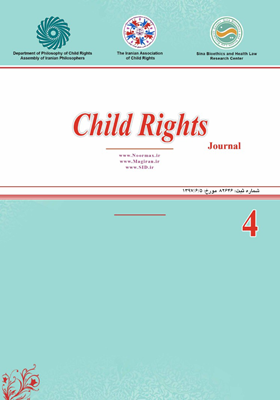Sociological Analysis of Children's Civil Society in Iran
Subject Areas : child rightsTaghi Azad Armaki 1 , Maryam Sha’ban 2
1 - Professor of Sociology, University of Tehran, Tehran, Iran
2 - Secretary of Sociology of Childhood Development and Health department at UNESCO Chair in Social Health and Development, University of Tehran, Tehran, Iran
Keywords: Child, Civil Society, Economics, Pathology Approach, Sociology,
Abstract :
This study seeks to study and analyze the civil society related to children in Iran. In this regard, with the qualitative approach and the method of monography and content analysis, she has analyzed two examples of active children's domain associations in Iran. The results show that the "pathological approach" to child-related civil society in Iran casts a shadow, indicating the dominance of the "American-English approach" to child-related civil society in Iran. And, unlike the title of licenses, associations are directly and indirectly affiliated with government agencies and seek to attract positive reviews from organizations for the three purposes of "obtaining financial support", "gaining legitimacy" and "reputation". They are government. Therefore, these associations, in effect, seek "economic profitability"; therefore, the domination of "rationality" and "market logic" over the inherent rationality that permeates civil society in Iran, especially in related fields. They are targeted with children; and children are purposely targeted as ignorant audiences and without the "critical intellect". In addition, the civil society in Iran has neglected its primary mission to seek the rights and improve the status of children affected and at risk of being harmed, forgotten, or in the forefront of the community's economic interests. Therefore, the civil society associated with children in Iran is malformed and "sick", which requires urgent specialized resuscitation and review.
1. Sa’ban M. Analysis of Sociology of Childhood in Iran: Emergence and Transformation. Tehran: Faculty of Social Sciences, University of Tehran; 1399.
2. Bashiriyeh H. Political Sociology. 11th ed. Tehran: Ney Publishing; 1374. p.329-332.
3. Global Civil Society. Edited by Baker G, Chandler D. New York, London: Routledge; 2005. p.103-104.
4. Hosseinizadeh MA. Political Islam in Iran. 1st ed. Qom: Mofid University Press; 1386. p.402.
5. National Authority of the Convention on the Rights of the Child in Iran. 1398.


